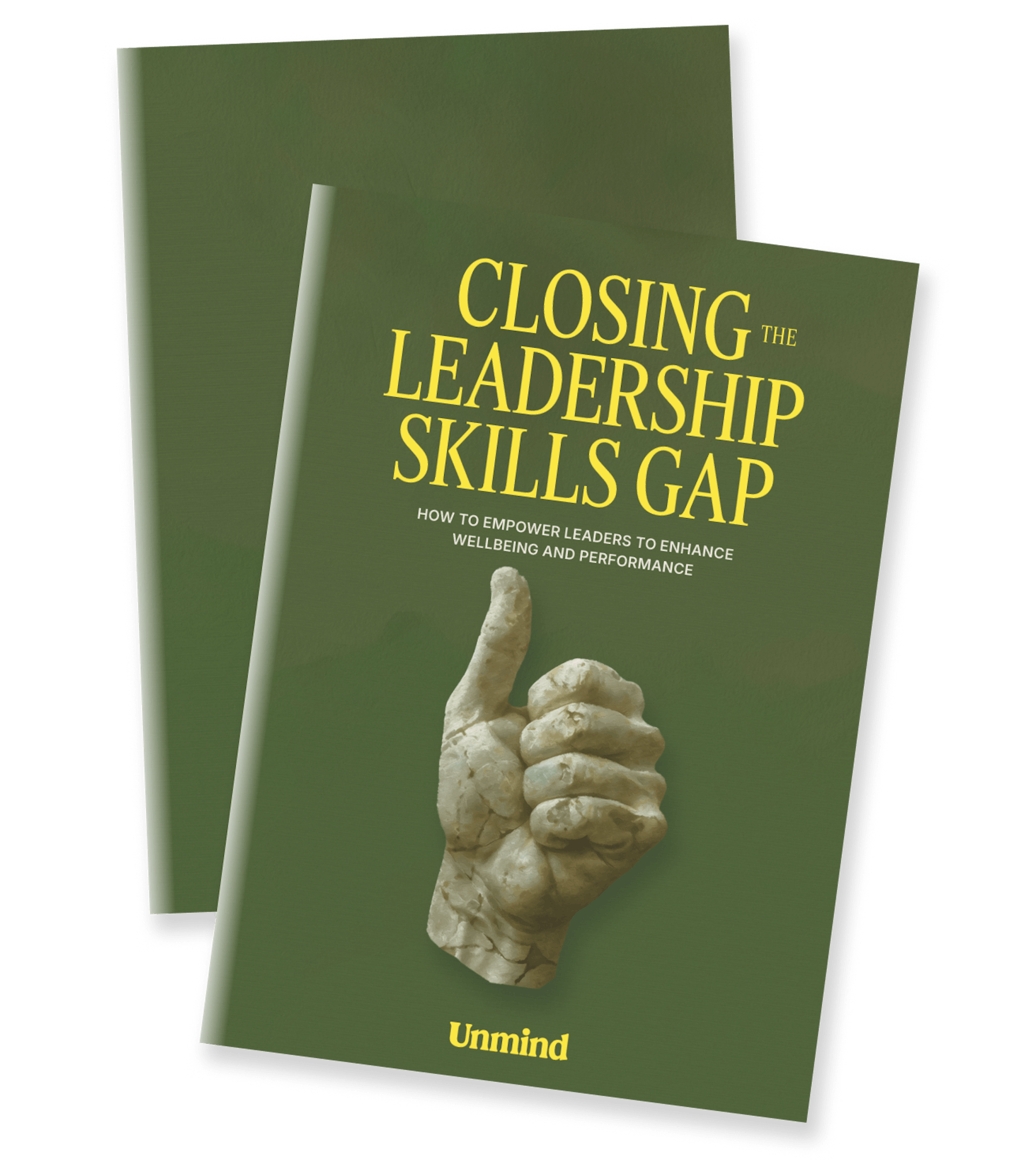Closing the Leadership Skills Gap

Across industries, leaders are currently experiencing a critical skills gap in addressing their mental health needs and those of their teams.
Without a wellbeing strategy that addresses the impact of leaders on organizational climate and performance, organizations are at financial risk of poor performance, burnout, and increased attrition. To address this skills shortage, Unmind conducted one of the first scientific trials of accessible, online leadership training focusing on skills around mental health and wellbeing.
This gold-standard randomized control trial (RCT) recruited 300 leaders from private and public sector industries (legal, IT, government, finance).
After just over an hour of digital training in a sample of US & UK leaders:
- 73% gained mental health knowledge
- 70% had greater confidence engaging with mental health issues
- 63% engaged in more proactive behaviors to support themselves and colleagues
Download your copy of the report to discover the crucial connection between leaders and employee wellbeing, the skills gap holding leaders back, and how this can be solved to drive sustainable high performance using expert support and tech innovation.